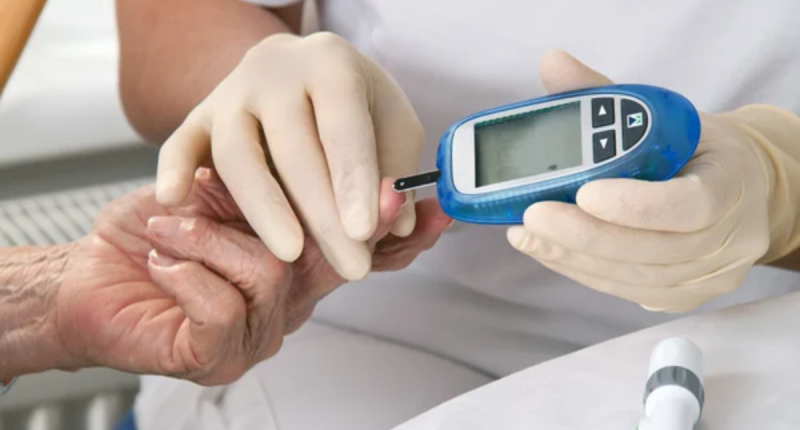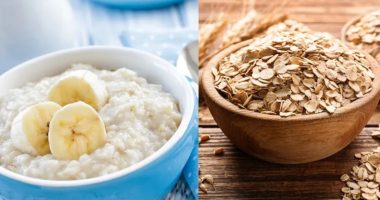The fact is that a diet high in sugary foods may not cause type 1 diabetes but likely to lead to insulin resistance and in turn contribute to the development of type 2 diabetes.
This is because eating too much sugar can lead to weight gain, and obesity is a major risk factor for type 2 diabetes.
Type 2 diabetes is a chronic condition that affects the way your body metabolizes sugar (glucose). Glucose is your body’s main source of energy, and it comes from the food you eat.
Additionally, sugar can have negative effects on your metabolism, including causing insulin resistance. Insulin is a hormone that helps your body cells use glucose for energy and when resistance occurs, the body’s cells don’t respond effectively to insulin.
When you have type 2 diabetes, your body either resists the effects of insulin or doesn’t produce enough insulin to maintain normal glucose levels. This can lead to a buildup of glucose in your blood, your cells will not be able to absorb glucose as effectively, and your blood sugar levels will rise, causing a variety of health problems, including heart disease, stroke, blindness, and kidney disease.
However, it’s important to note that sugar alone is not the sole cause of diabetes. Other factors that can contribute to type 2 diabetes aside from sugar include:
- Genetics and family health history
- Age
- Race and ethnicity
- Polycystic ovary syndrome (PCOS)
- Gestational diabetes
- Certain medications
- Other medical conditions
- Physical inactivity
Even with all the risk factors mentioned, the exact cause of type 2 diabetes is not fully understood, but it is believed to be a combination of genetic and environmental factors.
High Sugar Foods Cause Diabetes – What Research Found
There is a large body of research that suggests a link between high sugar intake and an increased risk of developing type 2 diabetes. For example, a 2013 meta-analysis of 30 prospective studies found that people who consumed the most sugary drinks had a 26% higher risk of developing type 2 diabetes than those who consumed the least.
Another study, published in the journal Diabetes Care in 2016, found that people who consumed the most added sugars had a 38% higher risk of developing type 2 diabetes than those who consumed the least.
While these studies show a correlation between sugar intake and type 2 diabetes, they do not prove that sugar directly causes diabetes. However, there are some biological mechanisms that could explain the link.
For example, sugar can cause weight gain, which is a major risk factor for type 2 diabetes. Sugar can also impair insulin sensitivity, which can lead to high blood sugar levels.
Additionally, some studies have shown that certain types of sugar, such as fructose, may be particularly harmful for diabetes risk. Fructose is a type of sugar that is found in high-fructose corn syrup and many processed foods.
Overall, the research suggests that high sugar intake is associated with an increased risk of developing type 2 diabetes. It is important to limit your intake of added sugars, especially sugary drinks and processed foods.
Here are some additional research findings that support the link between high sugar intake and type 2 diabetes:
- A 2019 study published in the journal Circulation found that people who consumed the most added sugars had a 28% higher risk of developing type 2 diabetes, even after adjusting for other risk factors such as weight and physical activity.
- A 2020 study published in the journal JAMA Internal Medicine found that people who consumed the most sugary drinks had a 16% higher risk of developing type 2 diabetes, even after adjusting for other risk factors.
- A 2021 study published in the journal Diabetes Care found that people who consumed the most added sugars had a 31% higher risk of developing type 2 diabetes, even after adjusting for other risk factors.
These studies provide strong evidence that high sugar intake is a risk factor for type 2 diabetes. It is important to limit your intake of added sugars to reduce your risk of developing this disease.
List of High Sugar Foods
- Sugary drinks: soda, juice, sports drinks, energy drinks, sweetened tea and coffee
- Candy and chocolate
- Cookies, cakes, and other desserts
- Ice cream and frozen yogurt
- Processed cereals
- Yogurt with added sugar
- Fruit juice and fruit juice concentrates
- Jams, jellies, and preserves
- Syrups and honey
- Ketchup and barbecue sauce
- Salad dressings
- Bread and pasta
- Some processed meats
- Flavored yogurt
Tips For Reducing Your Intake Of High-Sugar Foods
Here are some tips for reducing your intake of high-sugar foods:
- Drink water instead of sugary drinks. This is one of the easiest ways to reduce your sugar intake. Sugary drinks like soda, juice, and sports drinks are high in added sugars and empty calories. Instead, drink water, unsweetened tea, or coffee.
- Eat whole fruits instead of processed fruit products. Whole fruits are a good source of fiber and vitamins, but processed fruit products like fruit juice and canned fruit can be high in added sugars. Instead, eat fresh, frozen, or dried fruits.
- Choose unsweetened or low-sugar yogurt. Yogurt is a good source of protein and calcium, but some yogurts can be high in added sugars. Choose unsweetened or low-sugar yogurt to reduce your sugar intake.
- Limit sugary snacks. Sugary snacks like candy, cookies, and cakes are high in added sugars and empty calories. Instead, choose healthy snacks like nuts, seeds, fruits, and vegetables.
- Read food labels carefully. Look for the amount of added sugars listed on food labels. Added sugars are any sugars that are not naturally present in food, such as table sugar, high-fructose corn syrup, and honey.
- Cook more meals at home. When you cook your own meals, you can control the ingredients and avoid processed foods that are often high in added sugars.
- Make small changes gradually. It’s easier to stick to a new plan if you make small changes gradually. For example, start by drinking one less sugary drink per day. Once you’re comfortable with that, you can try making other changes.
- Find healthy substitutes. There are many healthy substitutes for high-sugar foods. For example, instead of sugary cereal, you can eat oatmeal with berries and nuts. Instead of sugary yogurt, you can eat Greek yogurt with fruit and granola.
- Don’t beat yourself up if you slip up. Everyone slips up from time to time. If you eat something high in sugar, don’t beat yourself up about it. Just pick yourself up and start again the next day.
Reducing your intake of high-sugar foods is a good way to improve your health and reduce your risk of chronic diseases like type 2 diabetes. By following these tips, you can make it easier to make healthier choices.
High Sugar Foods Cause Diabetes – FAQs
Q: Does sugar directly cause type 2 diabetes?
A: No, sugar does not directly cause type 2 diabetes. However, high sugar intake can increase your risk of developing the disease. This is because sugar can cause weight gain and insulin resistance, which are two major risk factors for type 2 diabetes.
Q: What are the symptoms of type 2 diabetes?
A: The symptoms of type 2 diabetes can vary from person to person, and some people may not have any symptoms at all. However, common symptoms include:
- Increased thirst
- Frequent urination
- Extreme hunger
- Fatigue
- Blurred vision
- Slow-healing sores
- Unexplained weight loss
Q: How is type 2 diabetes diagnosed?
A: Type 2 diabetes is diagnosed with a blood test. There are two main blood tests used to diagnose type 2 diabetes:
- A fasting blood glucose test measures your blood sugar level after you have not eaten for at least 8 hours.
- An oral glucose tolerance test measures your blood sugar level 2 hours after you drink a sugary drink.
Q: How is type 2 diabetes treated?
A: Type 2 diabetes is treated with a combination of lifestyle changes and medication. Lifestyle changes that can help to manage type 2 diabetes include:
- Eating a healthy diet
- Exercising regularly
- Losing weight if you are overweight or obese
- Quitting smoking
If lifestyle changes are not enough to manage your type 2 diabetes, you may need to take medication. There are many different types of medications available to treat type 2 diabetes. Your doctor will work with you to find the best medication for you.
Q: Can type 2 diabetes be prevented?
A: Yes, there are things you can do to prevent type 2 diabetes. These include:
- Eating a healthy diet
- Exercising regularly
- Maintaining a healthy weight
- Quitting smoking
If you have a family history of type 2 diabetes or if you have prediabetes, talk to your doctor about other things you can do to reduce your risk of developing type 2 diabetes.








